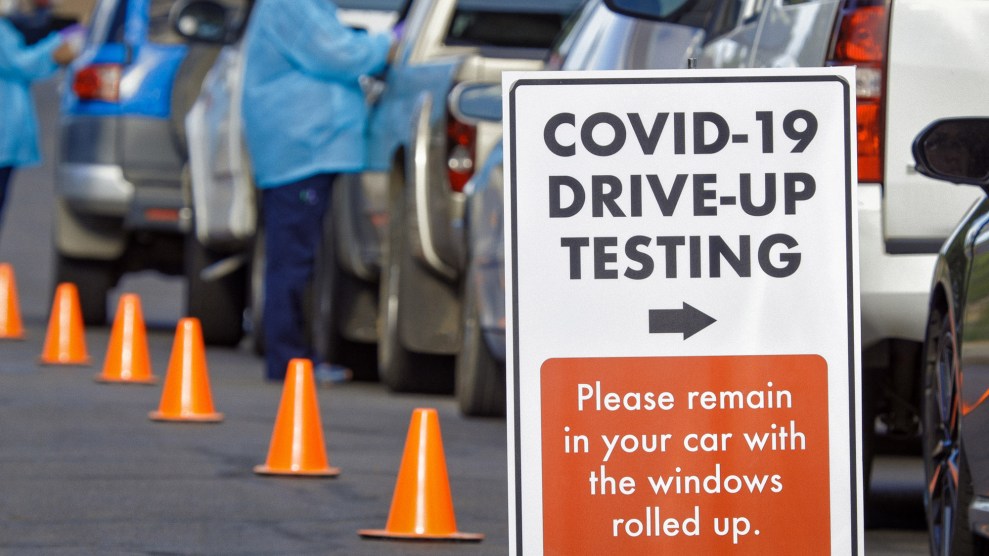One of the most maddening things about the federal government’s response to the coronavirus pandemic was the complete 180 on masks. In the critical early weeks of the crisis, the US Surgeon General and the Centers for Disease Control and Prevention balked at telling the general public to wear face coverings, even as residents of other countries embraced them. It was only in April that the CDC reversed itself; although most cloth masks won’t do much to prevent you from catching the virus, studies have shown they dramatically reduce the risk of transmission to others. It’s hard to think about this and wonder what might have been—how many fewer cases, and how many fewer deaths, might there have been if there was a concerted national push to wear masks in early March?
In an appearance on Sunday on CBS’ “Face the Nation,” host Margaret Brennan read US Surgeon General Jerome Adams some of his old comments on masks. On March 8th, a maskless Adams told Brennan “masks do not work for the general public. On Twitter a week earlier, he said “Seriously people — STOP BUYING MASKS.”
“Do you regret saying that?” Brennan asked.
His response was…well, it was a response:
.@Surgenon_General on his past mask guidance that they don’t work for the "general public”@JeromeAdamsMD: "Once upon a time we prescribed cigarettes for asthmatics, and leeches and cocaine and heroine for people as medical treatments, when we learn better we do better" pic.twitter.com/GPe4rnW1tv
— Face The Nation (@FaceTheNation) July 12, 2020
“It’s important for people to understand that once upon a time we prescribed cigarettes for asthmatics, and leeches and cocaine and heroine for people as medical treatments,” Adams said. “When we learn better we do better.”
It’s not often you see a public health official compare something he said in March to doctors prescribing cigarettes for asthmatics, but it’s also not often you see anyone in the Trump administration acknowledge they made a mistake.
At least he’s wearing a mask now.













